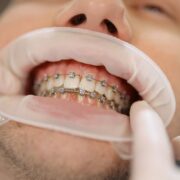Infertility can be rather heartbreaking. When people picture their future, it isn’t uncommon for them to picture a family that includes children of their own. Many people dream of having kids, and many more feel an inherent biological urge to create and care for a child.
Infertility affects a great number of people. According to data released by the National Institute of Child Health and Human Development in the United States, around 15 percent of all couples will be unable to conceive a child after one year of unprotected sexual intercourse – which indicates infertility. Infertility is often presented as being an issue faced primarily by women.
To some degree, this is the result of patriarchal role-giving in society. Historically, the emotional burden of childrearing and conception was placed upon the heads of women. In actual fact, male infertility is a common occurrence. Luckily, fertility options such as buying donor sperm or eggs can help couples trying to conceive. Male and female infertility both cause about one third of couple infertility cases, with the other third being caused by unknown factors.
With this in mind, it is certainly worth getting some of the facts about male infertility straight. Demystifying is a step on the road to normalization and treatment! Here are a few key facts about male infertility.
What Are the Causes?
According to the International Federation of Gynecology and Obstetrics, 10 key factors influence the chances of a male being unable to conceive:
-
Obesity
Fat deposits in the body can affect hormone production, which in turn can be instrumental in the production of fertile sperm. Garlic can help in fat reduction therefore you should increase its intake and you can also grow garlic indoors.
-
Smoking and the consumption of addictive substances
While many addictive substances interact with receptors in the brain, they also have the potential to interact with receptors in the testicles, influencing hormone production.
-
Radiation exposure
Radiation can effect the production and lifecycle of sperm. When doctors determine that a patient will need to receive radioactive chemotherapy, they often offer fertility treatment in the form of sperm sample freezing and preservation.
-
Nutrition and diet
Consuming antioxidants can help preserve fertility. Not eating enough? That can have the opposite effect.
-
Supplements and steroids
Supplements and steroids can unbalance your testosterone levels, severely affecting your fertility. Never get testosterone injections before consulting a doctor.
-
High testicular temperature
Get your laptop off your lap! Testicles hang on the outside of the body for a reason: to preserve a cool ambient temperature so that sperm can be produced. Changing this environment by overheating your testicles can have a dire effect on your fertility.
-
Infections
Many STI infections can change male fertility levels. Get checked regularly if you are sexually active.
-
Age
After the age of 35, men become far less fertile. The fragmentation of DNA in aging men makes successful and unproblematic conception less likely as age increases.
-
Varicocele (inflammation of the testicular veins)
Inflamed testicular veins can raise the ambient temperature of the testicles, meaning that the sperm production environment is compromised.
How Is It Treated?
The best way of ensuring that you do not become infertile is to take preventative measures. Iron out any factors that could compromise your fertility as you go through life.
Type with your laptop away from your crotch, minimize your intake of addictive substances and be careful with your diet. Of course, you should also try and get kicked in the nuts as little as possible.
If you are unable to conceive and want to discover the cause of your infertility, you’ll need to consult a specialist which is like you have to find the gems but, there are some well known specialist such as MCRM fertility clinic Missouri.
Male fertility clinicians will need to take a sperm sample for analysis. They will examine the sample and conduct a testosterone test in the UK to determine the cause of infertility.. Once you receive your results, you’ll usually be given a few options by specialists, with the aim of returning your fertility.
Perhaps the most effective treatment of all is IVF – In Vitro Fertilization. This technique is used by doctors to ensure successful conception by isolating healthy sperm and implanting it directly into the egg of the person who is going to be giving birth to the baby. It greatly increases the chances of successful conception and allows doctors to ensure that the sperm has a good chance of breaking through the egg.
Doctors may also suggest some simple lifestyle changes. The human body is amazing at adapting to change. Simply looking after yourself more could allow your body to begin producing healthy sperm once more. In very rare cases, specialists may advise sperm sample freezing if they deem your chances of conception to be irreversibly decreasing.










Comments